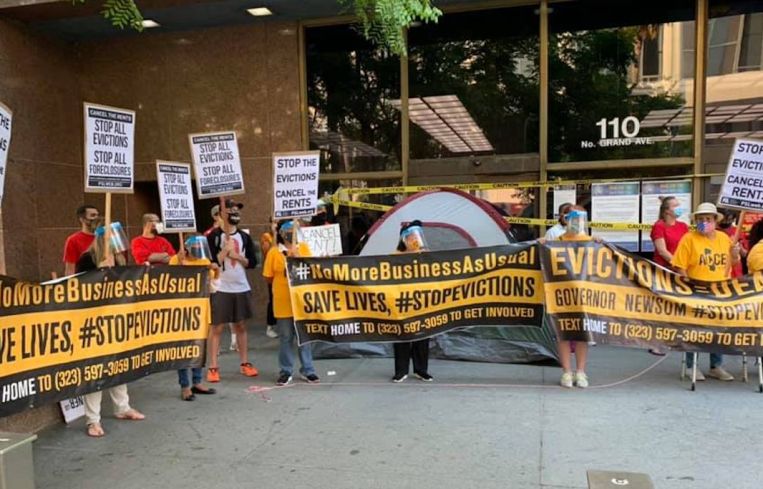California Extends Eviction Protections Into 2021
Tenants who didn’t pay rent between March 1 and Aug. 31 cannot ever be evicted for those missed payments
By Greg Cornfield September 1, 2020 11:20 am
reprints
In the final hours of the day before eviction proceedings were set to resume — and the final hours before the legislative session ended — California lawmakers passed a stopgap measure to permanently protect potentially millions of renters throughout the state from losing their apartments due to nonpayment of rent caused by the pandemic.
Gov. Gavin Newsom signed the bill into law shortly after. He said renters need protection from evictions when they can’t pay rent due to the economic shutdowns, and property owners need help to avoid foreclosure. In a statement, he said the new law is “just a bridge to a more permanent solution once the federal government finally recognizes its role in stabilizing the housing market.”
“We need a real federal commitment of significant new funding to assist struggling tenants and homeowners in California and across the nation,” his statement read.
Assembly Bill 3088 prevents evictions for nonpayment of rent for tenants financially impacted by the coronavirus and related economic shutdowns. Legislators behind the bill estimate that millions of Californians face eviction and struggle to pay rent directly because of the pandemic. Just in Los Angeles County, about 138,250 households did not pay any rent at least once between May and July, according to a joint report released Monday by UCLA and USC, and almost 40,000 households are three full months behind on rent.
Of the renters in L.A. struggling to pay rent, about 98,000 have been threatened with an eviction.
Most evictions across the state were halted in April by the California Judicial Council. But, like many other municipalities, the City of L.A. approved a local eviction moratorium that will last at least as long as the state of emergency and give renters a year after the emergency order is lifted to pay back rent.
The Judicial Council extended the statewide stay on eviction proceeds until Sept. 1 to give the Legislature enough time to act on the crisis of evictions. California Chief Justice Tani G. Cantil-Sakauye pointed out that lawmakers have had more than five months to explore remedies for the “looming crisis.”
Still, AB 3088 is just a stopgap measure to give Legislators more time to work on a longterm plan.
“This will not be the ultimate solution to addressing COVID-19 evictions, but will tide us over for the next five months,” said Assemblyman David Chiu, who authored the bill.
Under AB 3088, tenants who have coronavirus-related financial hardships and missed rent payments between March 1 and Aug. 31 cannot ever be evicted for those missed rent payments. The rent owed will be converted to civil debt, and landlords could recover that debt in small claims court.
During a transition period between today and Jan. 31, tenants with coronavirus-related financial hardships will need to pay 25 percent of the rent owed from September through January in order to maintain permanent protections from eviction. The remaining amounts owed to the landlord would be converted to civil debt and cannot be used as the basis of an eviction.
Tenants that cannot pay 25 percent of the rent owed by Jan. 31 face eviction starting Feb. 1. Landlords would be able to file a civil lawsuit or use small claims court to recover rent owed from tenants starting March 1.
In order to claim a hardship, tenants need to return a declaration under penalty of perjury to their landlord, but most tenants will not need to include documented proof with the declaration. However, higher-income tenants who make at least 130 percent of the area median income, or over $100,000 per year, must provide proof of financial hardship.



